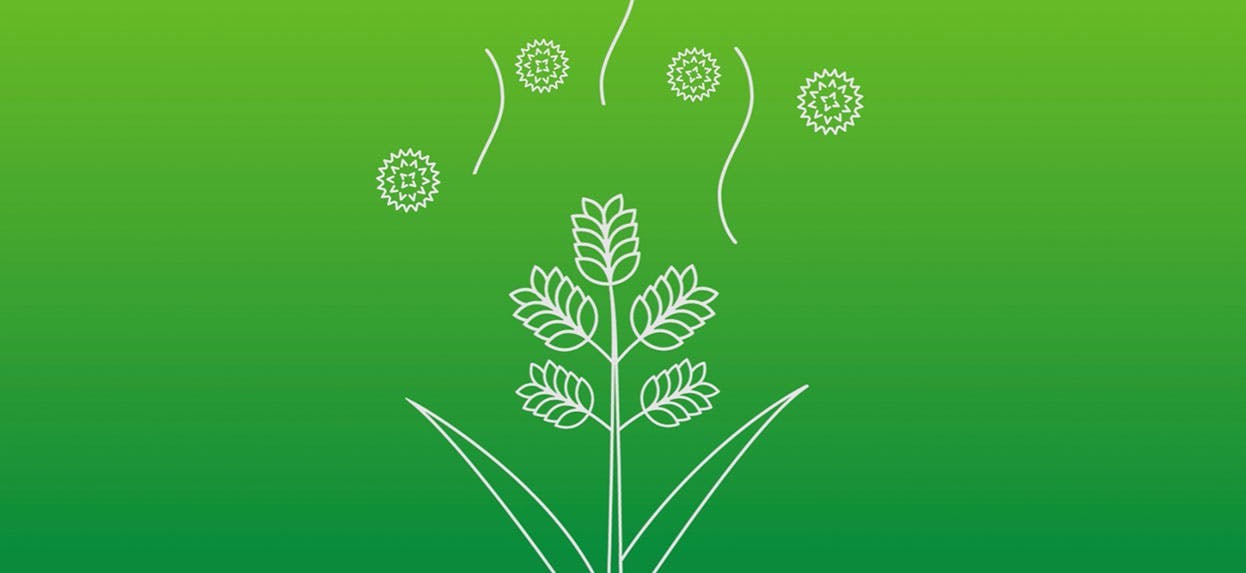
ALLERGY
TIPS
NAVIGATE ALLERGY SEASON LIKE A PRO

UNDERSTANDING ‘ALLERGY SEASON’
What does it mean when it’s declared that allergy season is upon us? — when is allergy season in full swing? Better yet, when will it end?! Here’s a look at what you can expect during allergy season, how to get ahead of symptoms of seasonal allergies, and how you can better prepare for itchy-eyes-and-nose season.
Read more to find all the information you need about allergy season, including common symptoms and what you can expect throughout the year if you have allergies.
WHAT ARE SEASONAL ALLERGIES?
Seasonal allergies (also known as allergic rhinitis) are symptoms of allergies that occur only at specific times of the year. Such as when mold spores and different types of pollen from trees and grasses are released into the air.
If you’re allergic to mold spores or pollen, as in the case with other allergies like dust or pet hair, your immune system sees allergens as a threat. It responds by releasing substances like histamine and other mediators into your bloodstream to help you flight them. The release of histamine can cause common allergy symptoms such as the following:
- Sneezing
- Runny nose (nasal congestion)
- Itchy and watery eyes
- Tingling or itchy skin
- Fatigue (often caused by poor sleep quality caused by nasal congestion)
Seasonal allergies can occur at any age. However, they usually occur around the age of 10 and peak in their early twenties. Symptoms often disappear later in life.
WHEN IS ALLERGY SEASON?
The timing of allergy season and symptoms of seasonal allergies can vary depending on where you live and what you’re allergic to. But generally speaking, there are three allergy seasons for outdoor allergens in Canada: spring, summer, and fall.
SPRING
Spring allergy season in Canada usually starts out West and can start as early as mid-March. Trees are the main culprit during this time, as they produce high amounts of pollen. A particularly wet spring could also lead to faster plant growth, which maximizes the production of mold spores during the season.
Unfortunately, more than two-thirds of people who suffer from spring allergies experience symptoms throughout the year.
SUMMER
During warm summer months, grasses, such as Bermuda and blue grass, release allergy-causing pollen.
FALL
Grasses are the top allergy offenders during the fall season—especially ragweed, which can grow in nearly every environment.
WHEN IS ALLERGY SEASON OVER?
Outdoor allergens should stop bothering you at the first fall frost. But unfortunately for some of us, allergy season drags on all year. Many Canadians experience year-round symptoms, regardless of when pollen season starts and ends. Year-round allergy symptoms can be caused by indoor allergens, such as dust mites, pet dander, and mould.
To find out what’s causing your allergy symptoms, you may want to consider consulting an allergist. While avoiding indoor and outdoor allergens is the most effective treatment, it’s not always possible. That’s why it’s so important to treat your allergies when they start.
HOW TO PREPARE FOR ALLERGY SEASON
The first step is to know what you’re allergic to. An allergist can help you identify the causes of your allergy symptoms. Next, it helps to minimize your exposure to those allergens—whether that means cleaning your home in a certain way to reduce indoor allergens or keeping an eye on your local allergy forecast so you can plan ahead.
Once you begin to suffer from symptoms of seasonal allergies, a good first step is to figure out which allergy medicine is right for you, so you can start treating your allergy symptoms as soon as they start. Taking your medicine before peak allergy season can help alleviate symptoms like nasal congestion, runny nose, itchy nose, sneezing, and itchy, watery eyes. You can find more tips to prepare for the next allergy season right here.
